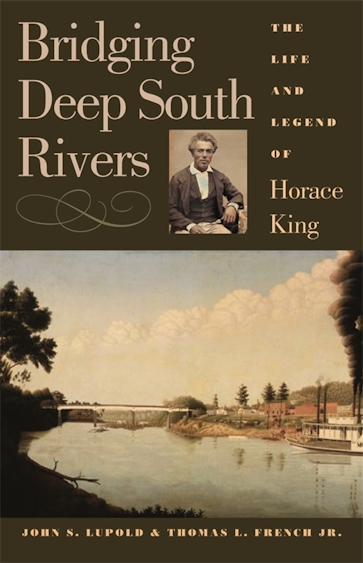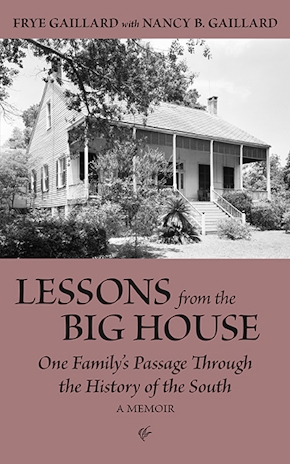Bridging Deep South Rivers
The Life and Legend of Horace King
Title Details
Pages: 352
Illustrations: 71 b&w illus.
Trim size: 6.000in x 9.250in
Formats
Paperback
Pub Date: 03/01/2019
ISBN: 9-780-8203-5539-9
List Price: $27.95
Hardcover
Pub Date: 08/31/2004
ISBN: 9-780-8203-2626-9
List Price: $36.95
eBook
Pub Date: 03/01/2019
ISBN: 9-780-8203-5538-2
List Price: $27.95
Subsidies and Partnerships
Published in association with Troup County Historical Society
Related Subjects
Other Links of Interest
• Learn more about Horace King at the New Georgia Encyclopedia
Bridging Deep South Rivers
The Life and Legend of Horace King
The remarkable life and career of a gifted architect and engineer—and former slave
Skip to
- Description
- Reviews
Horace King (1807-1885) built covered bridges over every large river in Georgia, Alabama, and eastern Mississippi. That King, who began life as a slave in Cheraw, South Carolina, received no formal training makes his story all the more remarkable. This is the first major biography of the gifted architect and engineer who used his skills to transcend the limits of slavery and segregation and become a successful entrepreneur and builder.
John S. Lupold and Thomas L. French Jr. add considerably to our knowledge of a man whose accomplishments demand wider recognition. As a slave and then as a freedman, King built bridges, courthouses, warehouses, factories, and houses in the three-state area. The authors separate legend from facts as they carefully document King’s life in the Chattahoochee Valley on the Georgia-Alabama border. We learn about King’s freedom from slavery in 1846, his reluctant support of the Confederacy, and his two terms in Alabama’s Reconstruction legislature. In addition, the biography reveals King’s relationship with his fellow (white) contractors and investors, especially John Godwin, his master and business partner, and Robert Jemison Jr., the Alabama entrepreneur and legislator who helped secure King’s freedom. The story does not end with Horace, however, because he passed his skills on to his three sons, who also became prominent builders and businessmen.
In King’s world few other blacks had his opportunities to excel. King seized on his chances and became the most celebrated bridge builder in the Deep South. The reader comes away from King’s story with respect for the man; insight into the problems of financing, building, and maintaining covered bridges; and a new sense of how essential bridges were to the southern market economy.
Contains an astonishing amount of hitherto unpublished information and makes a very significant contribution to the history of the American South in general and to black history in particular. Horace King's interactions with his fellow southerners—first as a slave, then as a freedman, and finally during Reconstruction as a politician—will make reading the book a rewarding experience for general readers.
—Robert O. Mellown, Associate Professor of Art History, University of Alabama
Meticulous research penetrates the myths and hearsay to at last give a true picture of the architect and engineer whose covered wooden spans bridged the Deep South.
—Richard Sanders Allen, Founder of Covered Bridge Topics, the journal of the National Society for the Preservation of Covered Bridges
Lupold and French add considerably to the knowledge of a man whose accomplishments demand wider recognition
—Eufaula Tribune
An extraordinary account of a black man's development of a successful business in the Deep South before and after the Civil War.
—Technology and Culture
Bridging Deep South Rivers separates fact from legend to the extent possible and recounts a life so extraordinary that I t would defy credibility were it a work of fiction. . . . Bridging Deep South Rivers offers the first thoroughly researched examination of the life of a compelling figure in southern history. It should appeal to an audience that ranges from lay readers to scholars.
—Alabama Review
The authors have done considerable research in giving us a view of life in the South during the middle of the 19th century. Anyone who wishes to better understand the development of the southern United States both socially and economically during this period will find Bridging Deep South Rivers a good way to begin that understanding.
—Civil War Book Review
An impressive and careful piece of research.
—Tuscaloosa News
Extensive and meticulous research . . . Lupold and French have illuminated the Deep South of the mid-nineteenth century, its technology, economy, and sociology, and introduced us to one of its exemplary citizens.
—Journal of American History



